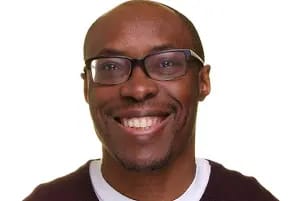
By Prisca Sam-Duru
Still on the race to clinch $100,000 prize money of the 2024 Nigeria Prize for Literature, Canada-based Nigerian author and academic, Uchechukwu Peter Umezuruike, is confident about winning as he cruises to the finals of the competition.

Umezuruike’s book for Children, ‘Wish Maker’ makes it his third time on the Nigeria Prize for Literature in the children’s literature category.
In an interview, the author explained what occupies his mind while writing for children.
For him, it is not only to get them entertained but most importantly, to challenge their young minds to aspire for greatness.
“I simply write and hope that children find the story fun and delightful and that the story makes them think hard about themselves, their relationships with others, their place in the world, and that they are heroes in their own right. That’s the overarching idea behind ‘Wish Maker’ and the other children’s books I have written.”
Umezuruike not only writes for children but across genres; fiction, poetry, and creative nonfiction. “My writing process is undisciplined, though, because my primary priority is on my family, so I write in what little time and space I can manage. I write because I want to, I have a desire to express or reflect upon a theme or subject, and I would love to share that reflection with the world. In other words, my writing process is less organic and schematic than I would like. Yet, that’s how I make the most of my time, space, and energy. I am thankful for my family support, nonetheless.”
It’s the dream of every writer who scales through to the longlist of 11 in the competition, to make the shortlist. The author shares how he felt upon receiving the news of getting into the finals. “I first heard the news when my publisher, Othuke Ominiabohs, and friend, Dr Obari Gomba, the 2023 Nigeria Prize for Literature laureate, informed me that ‘Wish Maker’ had made it to the shortlist. My wife and I had just returned from grocery shopping, and I saw their text messages, and of course, you could imagine my incredulity. Then I became elated. I am still deeply grateful to the judges for recognizing and considering my book worthy of the shortlist.”
“Wish Maker’ tells the story about children who experience hardship, which is prevalent especially in this continent. What is interesting though is that the book also encourages readers with tales about triumph despite the hardship. And through the life of the protagonist, the author strikes a balance between the two extreme situations.
“Ebele’s heroism is based upon the fact that he demonstrates courage when it is necessary to do so. He displays kindness, which I think is heroic, considering that kindness is not a given in society. At the end of Wish Maker, Ebele shows his careful thoughtfulness for his neighbours; he empathises with them and is willing to share the numerous fish he has caught in the river. That, for me, is heroic- the capacity to share the gift of plenty with others who struggled too,” he explained.
Wondering whether the transformative turnaround from severe hardship isn’t a mere escape from reality, Umezuruike explained that, “What you call reality is fantasy to some people, and fantasy is reality to others. I think some moments might come across as fantastic in our lives if we don’t view such moments through a specific or narrow way of sensing or being in the world. I would say children still believe in the fantastic, but who is to say that is not part of (their) reality? How do we even measure reality, and would you say your reality is the same as mine? Is hardship the main parameter for measuring reality? Some people live in luxury their whole lives; should we then claim that their reality is less valid than that of someone struggling with hardship?
“I try to resist a narrow way of seeing the world mainly through my own understanding of reality, of what is relatable to me or what I alone can only relate to. A more expansive way of conceiving reality could entail not insisting on a prescriptive notion of reality or fantasy. Ultimately, literature is about articulating a reality that might differ from the norm, even when that reality seems fantastic or utopian. As Chinua Achebe reminds us, writers attempt to present a different order of reality. Reality is not unchanging, fossilized in time and space.”
Disclaimer
Comments expressed here do not reflect the opinions of Vanguard newspapers or any employee thereof.